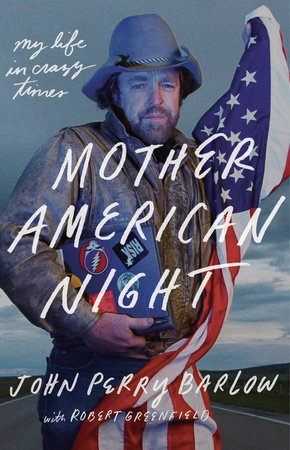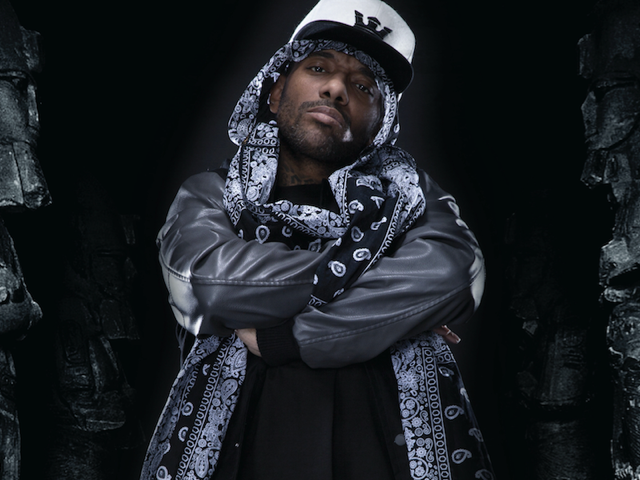An all-time great turns twenty…

by: Michael Shields
The Bends, the album where Radiohead ((“Radiohead” was taken from the song “Radio Head” on the Talking Heads album True Stories.)) spread their wings and took flight, is a unique album to dissect and examine two decades after its emergence. The conventional slant about The Bends is that it is the album where Radiohead crystallized their dynamic sound and where they realized how great they could become. It’s the one that paved the way for the emergence of OK Computer and the slew of brilliant albums that followed. But this idea, that The Bends was simply the jumping off point for what was to follow, doesn’t tell the whole story, and more importantly, doesn’t give appropriate credit to an album that not only holds a particularly lofty place in my heart, but in the upper echelons of the history of rock n’ roll.
The Bends isn’t merely a contender in the heavyweight battle for the title of Greatest Radiohead Album of All Time (going head to head with Ok Computer – but what’s amazing is that Amnesiac, Hail to the Thief, and Kid A are right there in the conversation), but it also has the distinction of being a player in the Royal Rumble for Greatest Rock Album of All Time. Although this is a bold claim, it is one that is substantiated by twenty years of hindsight ((The Bends was released March 8, 1995.))that tells a story of an English rock band from Abingdon, Oxfordshire that was introduced to the world via a gloomy hit single. One which they rallied against, and in doing so, crafted something ingenious, something beautiful, and something that rocks the fuck out.
Pablo Honey, Radiohead’s 1993 debut album, was in no way an indication of what Radiohead was capable of. And it in no way prepared listeners for what was in store with their follow up album, The Bends. Like Pablo Honey, The Bends is guitar-driven alternative rock intensified by Yorke’s impassioned wailing. But unlike its predecessor, The Bends fuses Radiohead’s fledgling brand of haunting melodies with more aspiring and imposing soundscapes. The Bends, time has taught us, was more than just Radiohead’s lunging into a bold, new future, but a shot in the arm to anthemic rock as a whole. Jonny Greenwood’s eye-popping solos (which would unfortunately go extinct just two albums later), provided an edge and an exuberance to Radiohead’s novel sonance. And paired with Thom Yorke’s tortured melancholy, it was clear that Radiohead were not simply on the verge of greatness, but that they had arrived equipped with a brand of pulsating, affecting, and textured music that would alter the face of rock n’ roll in perpetuum.
Pablo Honey notwithstanding, The Bends is Radiohead’s most accessible album. But it would be careless to confuse accessible with uncomplicated, as The Bends is anything but. It is critical to note that The Bends marks Radiohead’s first collaboration with Nigel Godrich, who worked under head producer John Leckie ((The Bends was recorded at EMI studios in London.)). Nigel is widely considered the unofficial sixth member of the band as his presence is so critical to their unmistakable sound. He would go on to co-produce the band’s enormously successful masterpiece, OK Computer, and has been involved in every Radiohead album since. While the complex, multi-segmented and intricate textures of their future albums are not yet cognizant on The Bends, there are radical hints to a broadening of sound and scope, beginning with the mosaic layering of the opening track, “Planet Telex.”
“Planet Telex” served as a splendid introduction to the band’s change of direction, functioning as an electronic, resonating jaunt that kicks things off with passion. A clear sign that Radiohead were out to prove something, “Planet Telex” is succeeded by another barnburner in “The Bends.” Thom Yorke’s voice has never been as pronounced as it is on this album and this is thoroughly evident on the title track, as “The Bends” finds Yorke bellowing “Where do we go from here? The words are coming out all weird, Where are you now – when I need you?” with such disconcerting earnestly that you can feel his angst in your very bones.
The highly accessible, poppy meanderings of “High and Dry” provide the ideal primer for the dystopian rock-pop epic that follows, “Fake Plastic Trees.” A song that has the power to move even the most unflappable of skeptics, “Fake Plastic Trees” is a dramatic, wistful ballad where Yorke laments, “If I could be who you wanted, If I could be who you wanted….all the time.” Yorke’s hauntingly sung lyrics are so powerful and crushing that they linger with you, and they still manage to send shivers down my spine two decades later. “Bones” is a virulent, aggressive number that features echoing, pulsating guitar riffs and Yorke’s burgeoning falsetto. Its bullish impact is only pacified by the soothing chords that introduce us to “(Nice Dreams),” an impeccably placed interlude that proves all too necessary, as the track that is to follow isn’t for the faint of heart.
The opening moments of “Just” are trickery. They are a misleading introduction to the ultimately heavy-as-hell, frenzied mid-point to the album. An anthemic ode to self-loathing, “Just” climaxes with Yorke howling “You do it to yourself” as symphonic madness transpires about. “My Iron Lung” is another creeper which again starts out deceivingly mellow, until dual guitars are brought eventually to life, seemingly at odds with each other yet in complete synchronicity and laying siege upon the listener’s senses. In it, Yorke croons, “This is our new song, Just like the last one, A total waste of time,” – a blatant reference to their disenchantment with the hit song that made them famous, “Creep.”
“Bullet Proof…I wish I was” initiates the tail end of the album, where a well executed assemblage of tracks serve as an ideal comedown. After the whirlwind that precedes, a soft landing is in order and that is what the delicate, bewitching “Bullet Proof…I wish I was,” the remorseful tale of love’s ceaseless strain “Black Star,” and the hypnotic, distressing “Sulk,” provide. “Street Spirit [Fade Out]” is the cherry on top, where Yorke laments over his own insignificance and restlessness beneath oscillating guitar arpeggios. Thom Yorke is quoted as describing “Street Spirit [Fade Out]” as “fighting with the devil and losing every time,” and that’s a fitting tribute and an ideal closer to what can authentically be hailed as a perfect album.
The title of The Bends refers to decompression sickness, when deep-sea divers come up too quickly – a comment on the band’s sudden fame following “Creep,” a song they loathe to this very day. In this way, the drama that The Bends was conceived under isn’t wholly unique to a band that was cast into the limelight on the strength of one huge hit single. The pressures of instant success weighed on the band, and “Creep” hung around their neck like an albatross as they toured the world. There were rumors of inner-turmoil and even suggestions that the band was on the verge of breaking up. But instead of packing it in, they found solace in creativity, and focused their energy on something that was bigger, better, and so powerful that it would bury “Creep” in its dust, shaping it as just another of their many hit singles.
The Bends is the Radiohead fan’s Radiohead album. It’s the one where guitars still mattered and with their every shred they cut you to the core. What really affected me about The Bends, and does to this day – besides the thunderous guitar riffs that make me feel wholly alive – is the darkness. Thom Yorke wore his vulnerability on his sleeve throughout The Bends, not holding back at his weariness with the confounding and often hurtful world. Revealing an insecurity that is so damn relatable, Thom took those brave enough to walk with him on a journey into the darkness without even so much as a candle to light their way. But what was remarkable, is that in this darkness you could see. And maybe what you saw was upsetting, overcoming, and a touch too honest, but it was also revelatory, and absolutely fucking beautiful.
With the arrival of The Bends, Radiohead’s ascended into rock royalty, and the albums that they released subsequently are now considered marvels of modern rock. But regardless of their acclaim, future releases never sounded as unhinged and free as The Bends. The album was steered by dense guitar riffs and empyrean atmospheres that signified a momentous evolution in their sound. But while this was indeed a turning point for the band, The Bends will forevermore stand on its own as one of the greatest guitar rock albums ever made. Period.






Thank you:
For causing me to miss my stop on the subway as I tuned out and turned up this album. Your track by track summation made it possible to get past the melancholy to discover those aspiring soundscapes.
For continuing to resurface albums which otherwise may be lost on those of us who weren’t there for the first go round.
For not judging those of us who weren’t there for that first go round.